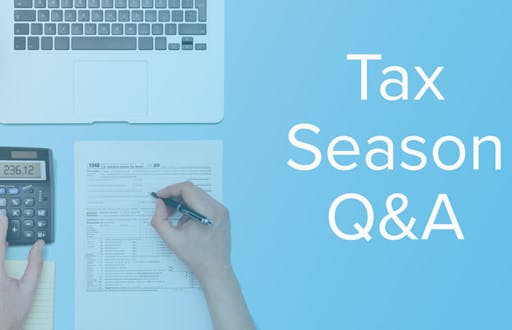
Enrolled Agent Liz Correa and Bryan Knuff licensed CPA and main partner at Knuff & Kunde CPAs in Eagle, Idaho. They lent us their expertise in a brief Q&A about the 2020 tax season, presented for our readers below.
2020 Tax Season Q&A
Q. Many people had to start new jobs this year due to the Pandemic. What should we take into consideration when filling out our tax paperwork when starting a new job?
A. With the new W-4, individuals basically have to estimate their own tax liabilities to ensure their withholdings are accurate. This can be especially daunting if you have more than one job or have a spouse who also works one or more jobs. On top of that, if children are in the mix, ensuring the accurate tax credits are accounted for is also important.
Q. How will Economic Impact Payments be reflected in tax prep for 2020?
A. Stimulus payments will be reported on your return for 2020 but will not be taxable. They are included to insure you receive as much stimulus money as you are entitled to. Suppose your income was too high in 2019 and you did not receive a stimulus payment. Or, suppose you had a change in dependents or a baby and should have received more, you will see those adjustments reflected on your 2020 tax filing.
On the other hand, if your income in 2020 is too high and disqualifies you from getting the stimulus, you will not have to pay back what you received.
Q. If someone claimed unemployment for any part of 2020, how will that effect their tax preparation?
A. If you received unemployment, you will receive a 1099-G tax form in the mail reporting these payments. These payments are taxable for federal and state taxes and your accountant will need this form to accurately prepare your return.
Q. What are some of the challenges you’ve had as a CPA during the Pandemic?
A. Without a doubt the greatest challenge last year was keeping up with all the changes that came from the COVID legislation. These were so that small businesses could get favorable loans, new tax benefits for individuals, as well as fielding all the questions related to stimulus checks. Many preparers probably rejoiced from the news of extended due dates to July, but it just prolonged tax season making it feel like 2020 was the year tax season never ended.
Q. What resources are available to individuals looking for help completing their 2020 taxes in Idaho?
A. While Google is always a quick and easy way to find a simple answer, oftentimes questions that appear simple actual turn into more complicated scenarios. In those times of needs, an experienced tax accountant will probably save you more in the long run than attempting to do them yourself, especially if you have a small business.
Q. As we look ahead to another year with COVID-19 as a factor in our economy, what can individuals do to prepare for the 2021 tax season throughout the year?
A. Save your deductions! Keep a mileage log! Keep your receipts when you donate to Goodwill, Youth Ranch, etc. For those that have more complicated tax situations, meeting with your accountant will probably be time well spent to help you plan for deductions and savings available to you.
Also Good To Know
Q. What are ITINs?
A. An ITIN is an Individual Taxpayer Identification Number issued by the IRS as a tax processing number. The IRS issues ITINs to individuals who are required to have a national taxpayer identification and are not eligible to obtain a social security number in the U.S.
Q. Why should undocumented immigrants apply for an ITIN?
A. There are reasons in the benefit of an individual or taxpayer to apply for an ITIN. In the line of work [of a CPA], it is essential to taxpayers that cannot obtain an SSN to have an ITIN when there is a tax reporting requirement, regardless of their immigration status.
ITINs have an expiration date; it is important to keep track of when they were first issued or renewed.
Q. What information do FIs typically share with their members that plays a part in tax payments?
A. Financial institutions provide 1099s to their members to report interest, dividends, and stock transactions. So, check your mail or your electronic documents regularly this time of year for the 1099 from your financial institution if you have an interest bearing account.
About Our Experts
Liz Correa has participated as a contributor to the "Asesores de Confianza" (Trusted Advisors) radio segment on La GranD 106.3FM, a regular segment in partnership with CapEd Credit Union. She brings her expertise in taxes working closely with the Hispanic Community to translate complicated financial concepts into digestible content for Spanish speakers in Idaho. Learn more about her, and the team at Knuff and Kunde CPAs on their website.
This is information is provided as a courtesy and is not to be interpreted as tax advice from CapEd Credit Union. Please contact a tax advisor for additional information.
